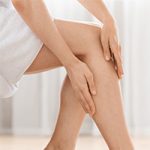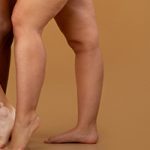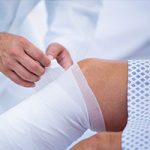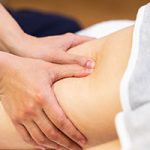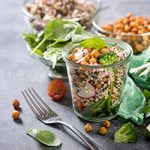A good nutrition can be a great strategy reduce and even paralyze lipedema. Being a disease in which the main characteristic is the fat accumulation in the extremities in a symmetrical way, mainly caused by the cellular inflammation, and which also leads to vascular alterationIt is advisable to include certain foods in the diet and avoid others.
Therefore, some of the foods that should not be consumed are those that are high in fat. Some recommended diets are RAD diet, the anti-inflammatory diet and the ketogenic or keto diet, which have in common a base of low glycemic index foods and with high fiber content. This type of diet can achieve great improvements in terms of pathology, such as achieving a proper weight, pain reduction and of the inflammation.

Recommended foods
If you suffer from lipedema we recommend that you your diet always includes:
- Consume fish as the main protein.
- Extra virgin olive oil is recommended, but without abusing its consumption.
- Ginger as a condiment or in infusion as it has anti-inflammatory properties.
- Avocado in adequate quantities since it is very caloric.
- Fruits such as: banana, cherries, raspberries and blueberries.
- Vegetables such as: chard, garlic, spinach, cucumbers, pumpkin, carrot, cauliflower and onion.
- Infusions of anti-inflammatory fruits and herbs, as well as decaffeinated coffee as preferred beverages, in addition to water.
- Natural dried fruit.
What all these foods have in common is that the more natural and fresh they are, they will have better benefits, as they facilitate digestion, making it not a complicated or too heavy process for the body.
Foods not recommended
On the contrary, there are also foods that you better avoid if you suffer from this pathology. Among them are:
- Red meats and chicken, as well as sausages.
- Evaporated, condensed or whole milk.
- Ultra-processed foods rich in hydrogenated fats, sugars or salt.
- Vegetable oils such as sunflower or corn.
- Margarines and other hydrogenated fats.
- Foods rich in white wheat flour such as bread, pasta and cookies.
- Pastries (cookies, cakes, biscuits).
- Breakfast cereals high in added sugars.
- Fries.
- Honey, sugar, maple sap syrup and other sweeteners.
- Potatoes.
- Salty snacks.
- High-grade alcoholic beverages, white wine and beer.
Before planning your diet, it is advisable to consult with your doctor to avoid interactions and adverse reactions, because in some cases, depending on the assigned medication, the benefit or not of these foods may vary, becoming harmful.
You also have to take into account that, in addition to taking care of your diet, you have to moderate physical activity for even better results.

Degrees of lipedema according to the ailment
Grade I: The surface of the skin is regular, but soft, with small palpable nodules of fat.
Grade II: Due to the growth of the nodular structure, the skin surface is uneven and hard.
Grade III: The surface of the skin is fatty, especially on the hips and ankles, where nodules of all sizes proliferate.
If you need more information or help from the portal of Lipepedia we offer the possibility of contact specialist doctors in treating lipedema to ensure your health and help improve your mood.


